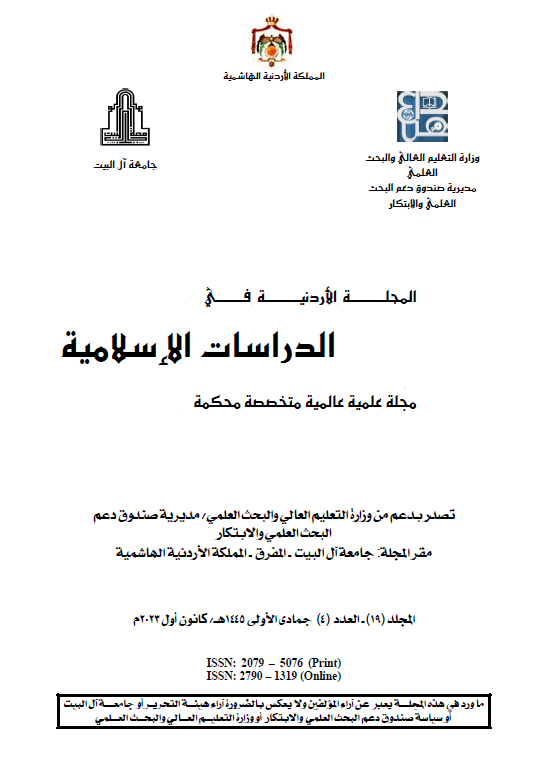The Legal Principles of Stem Cell Rulings
DOI:
https://doi.org/10.59759/jjis.v19i4.280Keywords:
Shar'ia Principles, Rulings, Stem CellsAbstract
This study aims to clarify the reality of stem cells and their uses, as well as to establish rules governing them by extracting rulings on their specific issues within a comprehensive framework that is bound by legal purposes and constrained by legal principles and regulations. This is accomplished by highlighting the recognized principles in regulating legal judgments and providing practical models for stem cell techniques and their legal rulings. Stem cells are undifferentiated cells capable of transforming into any specialized cell type, with the ability to continuously divide and renew. They are expected to be a significant source for treating many chronic diseases. The study concludes that the permissibility of using stem cells and benefiting from them in therapeutic and research fields requires the establishment of a comprehensive system of legal principles. The legal judgment regarding the use of stem cells is based on the permissibility of their source. If the source is permissible, their use is allowed, considering the balance between benefits and harms in accordance with the objectives of Islamic law. Furthermore, it is permissible to store them in specialized banks for both therapeutic and research purposes. Among the legal principles for the permissibility of using permissible stem cells are obtaining consent from the donor or the one with legal authority and ensuring the guarantee in cases related to this issue, arising from deceit, negligence, violation of Shar'ia or regulatory principles.





